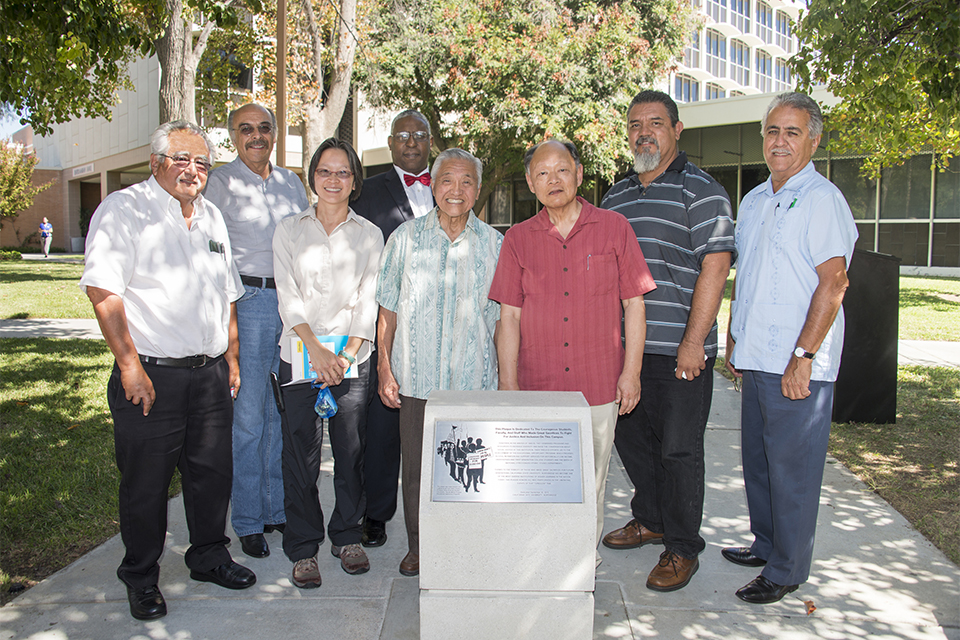Founders of EOP Urge Students to Advocate for Access and Diversity
Founders of the Educational Opportunity Programs at California State University, Northridge urged students to continue to advocate for access for traditionally underrepresented groups, at the unveiling of a memorial plaque honoring those trailblazers.
“We may have been here at the beginning, but we need others to follow up and keep that door open,” said Everto “Veto” Ruiz, professor emeritus in the Department of Chicana/o Studies and one of the students who called for the creation of EOP and campus’ ethnic studies programs. “You make sure that this public-serving institution serves all the people, all the taxpayers who invest in this facility.”
As faculty at CSUN in the 1960s, Warren Furumoto, emeritus faculty in the Department of Biology, said he applauded the bravery of the African-American and Latino students who demanded the university provide relevant classes and resources for their communities.
“This place was so racist,” Furumoto said. “I hope that future students take this as a directive to examine the university and the policies of the university. If it is not serving the people that are paying for the university, then it should be changed.”
EOP celebrated its 46-year history on Sept. 30 with the unveiling of the memorial plaque and a series of teach-ins led by faculty from the Departments of Africana Studies, Chicana/o Studies and Asian American Studies. The plaque unveiling, which was held at the Ralph Prator Sundial Fountain near Bayramian Hall, was dedicated to the students, faculty and staff who fought in the 1960s for social justice and equality at CSUN.
Glenn Omatsu, coordinator of EOP’s Faculty Mentor Program and faculty in the Department of Asian American Studies, said he donated the money to create the plaque to “preserve the history” and recognize the students, faculty and staff who sacrificed to establish EOP and CSUN’s ethnic studies departments. Many of the demonstrators were beaten and arrested by police or threatened with other disciplinary actions by campus administration.
“EOP and ethnic studies exists because of students, not because of administrators,” Omatsu said. He encouraged those in attendance to learn the “history of liberation.”
EOP was founded at CSUN in 1969 and aims to serve historically low-income, underrepresented, first-generation college students by providing them with access to the university and holistic academic services and support. The students’ efforts not only gave birth to the creation of EOP, but also resulted in the establishment of the Department of Africana Studies (formerly Pan African Studies) and the Department of Chicana/o Studies, two of the oldest and largest degree-granting programs of their kind in the nation.
“EOP has survived and has had a significant impact on CSUN,” said EOP Director José Luis Vargas. “Those of us here must strive for excellence in everything we do and maintain a vigilance to ensure the future for our communities.”


 experience
experience